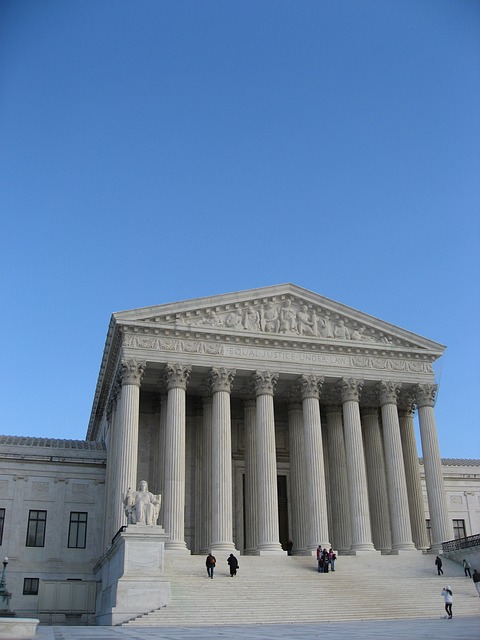The Decision by the US Supreme Court and the Distorted Logic of the US Stance on Jerusalem
By Yoav Tenembaum
Published on June 10, 2015

The decision by the US Supreme Court to back President Barak Obama’s Administration on the Jerusalem Passport Dispute raises a question of logic that goes beyond the legal controversy entailed in it.
The US Supreme Court judges have dwelt primarily on the question of whether the Executive or Legislative Power under the US Constitution should have either the sole or primary authority in deciding matters of this kind in the realm of foreign policy.
The question as to whether Jerusalem should be recognized as an integral part of Israel’s sovereign territory has been secondary.
However, looking at this matter more broadly, there is no doubt that the latter is the principal question, both politically and legally, for a logical and rational answer to it would have rendered this legal case unnecessary, to begin with.
The controversy arose because a child was born in Jerusalem and his parents wanted that in his US passport the word “Jerusalem” be followed by the name of the country in which he was born: Israel. That was unacceptable to the US government. Jerusalem, so it was claimed, is a disputed territory and thus the city, any part of it, must not to be referred to as being part of Israel.
Israel’s capital is Jerusalem. The government is located there; so are the Supreme Court and the Bank of Israel. Indeed, these are located in West Jerusalem, which is seen by the international community as being an integral part of Israel’s sovereign territory, even following a future peace agreement with the Palestinian Authority.
After all, both the US government and the international community as a whole regard the 1949 Armistice Lines, also known as the 1967 borders, which include West Jerusalem, as Israel’s internationally recognized boundaries.
There is certainly a dispute between Israel and the rest of the international community as to the status of East Jerusalem. The international community objects to Israel’s official position whereby East Jerusalem is an integral part of a united city under Israeli sovereignty. The status of East Jerusalem, as that of the West Bank, according to it, ought to be negotiated between Israel and the Palestinian Authority with the aim of establishing a Palestinian state next to Israel.
However, the US government and the international community explicitly accept that West Jerusalem is part of the sovereign territory of Israel and implicitly understand that the Jewish neighborhoods beyond it (that are part of Jerusalem) would remain under Israeli rule following a peace agreement.
Why should the US government then object to adding the word ‘Israel’ next to the city of Jerusalem? If the US government wished to be legally precise it could declare that it recognizes, or at least accepts, that West Jerusalem is part of Israel. However, the US government declines to accept any part of Jerusalem as belonging to Israel.
To be sure, Jerusalem was not intended to be part of the Jewish State under the United Nations Partition Plan of 1947.
However, there are other territories that were not supposed to be part of the Jewish State according to the UN Partition Plan of 1947 that, as a result of the war that ensued following the rejection of the Arab states and the Palestinian leadership to endorse it, were incorporated into the newly created Jewish State.
These territories are seen by the international community as sovereign Israeli territory; so why not West Jerusalem? If the Armistice Lines of 1949 are regarded as the basis for a future settlement between Israel and the Palestinian Authority, why make a distinction between, say, Acre, Jaffa and West Jerusalem?
If logically no distinction ought to be drawn, what is the problem of recognizing, or at least accepting, that West Jerusalem is an integral part of Israel?
Even the argument advanced by the Obama Administration, as by other governments world-wide, that by pretending that Jerusalem – or at least its western part – does not belong to Israel and thus is not Israel’s capital a possible crisis with the Arab world is averted is not warranted by reality. After all, most Arab and Muslim States call for a two-state solution based on the 1967 borders. According to it, West Jerusalem should remain within Israeli sovereignty. So what is the problem, then, of recognizing, or at least accepting, that West Jerusalem is part of Israel?
The problem with the decision by the US Supreme Court lies with the original position of the US government. Had the US government followed the logic of its official line, it would have accepted that West Jerusalem was part of Israel and thus this case would not have reached the Supreme Court.
The Author

Yoav J. Tenembaum is a lecturer at the Diplomacy Studies Program, Tel Aviv University. He obtained his doctorate in Modern History from Oxford University and his Master’s degree in International Relations from Cambridge University. He read for his B.A. in History at Tel Aviv University.
His articles have been published in journals, magazines and newspapers in various countries. He has taught courses and seminars on International Conflicts, International Crises, International Organizations and Institutions and The Shaping of Foreign Policy and Decision-Making.
Article picture: zdulli via Pixabay


